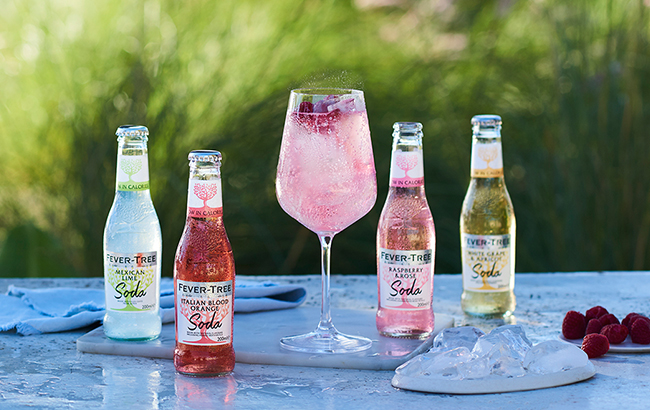Fever-Tree faces £20m glass cost
Mixer producer Fever-Tree saw revenue rise by 11% last year, however it expects to pay £20 million (US$24.7m) in energy-related glass fees in 2023.

The UK-based producer saw revenue reach £344.3 million (US$426.9m) in 2022, up from £311.1m (US$418.3m) for the previous 12 months.
For the first six months of 2022, the firm’s revenue rose by 14%.
The company said the impact of rising European energy costs on glass bottles would be ‘material’ in the year ahead.
The firm said while energy pricing has ‘significantly’ declined, it ‘remains volatile and at least three times higher than 2021 levels’.
With 80% of its business in glass bottles, Fever-Tree warned it would be highly affected by this ‘significant headwind’.
The firm has estimated that the energy used to make glass bottles would result in an additional £20m cost to the business in 2023, compared with glass pricing in the first quarter of 2022.
Fever-Tree is ‘working closely’ with its glass suppliers to ease this cost where possible. The firm said ‘significant margin improvement’ is predicted for 2024 as energy pricing normalises.
Tim Warrillow, CEO of Fever-Tree, said: “2022 has seen the Fever-Tree brand continue to gain traction and prominence across the globe resulting in double-digit revenue growth and profits in line with expectations.
“Furthermore, the brand continues to increase its clear global market leadership position and remains the primary driver of this increasingly prominent international drinks category.”
Geographical performance
The firm’s core UK market saw sales decline by 2% to £116.2m (US$144m) in 2022.
On-trade revenue in the market rose by 28%, however the firm noted that rail strikes during the key festive period had a ‘notable impact’ on sales.
The brand said it had increased volume share in the off-trade from pre-pandemic levels.
In the US, sales climbed by 23% to £95.6m (US$118.5m), despite the ‘industry-wide’ impact from port congestion and logistics disruption, the firm said.
During the 12-month period, Fever-Tree acquired non-carbonated US cocktail mixer brand Powell & Mahoney. The firm said the deal adds a platform to ‘accelerate’ its entry into the category in 2023.
Revenue in Europe increased by 15% to £101m (US$125m), driven by a ‘strong’ performance in Southern Europe, but slightly offset by ‘softening consumer sentiment’ in Germany.
On-trade sales ‘accelerated’ from the second quarter after restrictions were removed and travel rebounded strongly.
Fever-Tree said it continued to perform well in the off-trade, and remains the largest premium mixer brand in Europe.
The rest-of-the-world region saw sales rise by 18% to £31.5m (US$39m), led by ‘strong’ sales in Australia.
The company also noted two ‘significant’ changes in its route to market, including a new distributor in Canada, and a partnership agreement with Asahi Breweries in Japan.
Outlook for 2023
In its outlook for 2023, Fever-Tree said it remained confident in delivering strong growth globally, particularly in the US, and of returning to growth in the UK.
The company has introduced a new revenue guidance range of £390m to £405m (US$483m-US$502m) for 2023, representing growth between 13%-18%.
The mixer producer warned that it had seen double-digit increases for input costs, including filling fees, ingredients and packaging.
As such, Fever-Tree said it has implemented pricing actions across regions, including the US, cost-saving initiatives and increased production in the US to improve its margins this year.
Fever-Tree is working to deliver earnings before interest, taxes, depreciation and amortisation (EBITDA) in line with 2022 and has introduced an EBITDA guidance range of £36m to £42m (US$44m-US$52m) for 2023.
Warrilow added: “Looking ahead to 2023, we remain very confident in delivering strong top-line growth, most notably in the US.
“Whilst the initiatives we are implementing would have driven margin improvement during the year, the energy-related cost increases, which are particularly acute across the glass industry, mean we expect to deliver absolute EBITDA in line with 2022.
“These temporary additional costs will unwind significantly as the energy price recalibrates and we are resolute in continuing to invest for the longer term, by introducing new products, expanding into adjacent categories such as adult soft drinks and delivering exciting new marketing campaigns across our regions.”
Related news
Brown-Forman FY sales rise as Tequila declines
